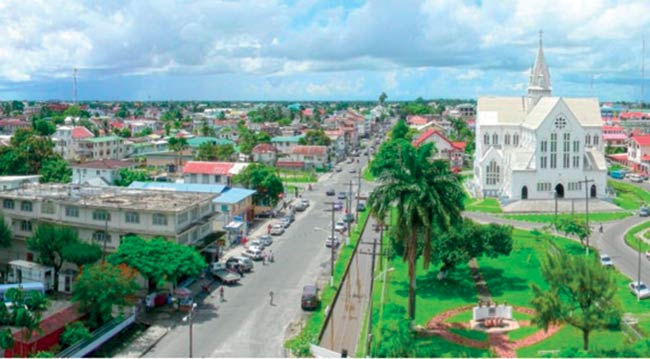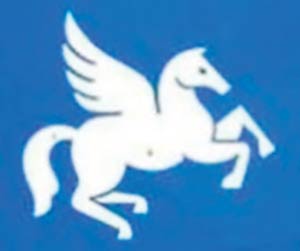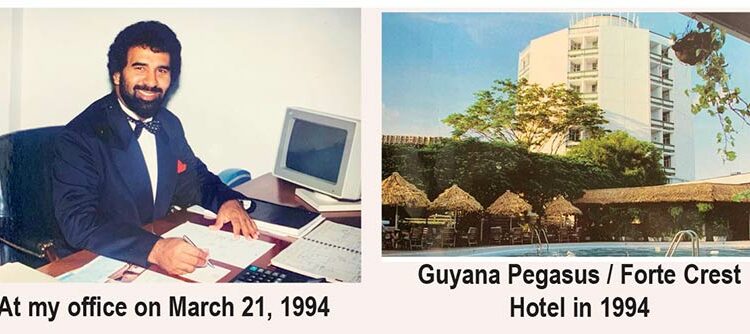Dr. Chandana (Chandi) Jayawardena DPhil
President – Chandi J. Associates Inc. Consulting, Canada
Founder & Administrator – Global Hospitality Forum
[email protected]
Welcome to Georgetown!
After two days of air travel with stops in the Middle East, Europe, and the Caribbean, I was thrilled to land in South America for the first time on the evening of March 20, 1994. My first impressions of Guyana’s only international airport – Timehri International Airport (now Cheddi Jagan International Airport) – were a mixed bag. Half of the Guyanese I encountered at the airport bore a resemblance to me, as they were of East Indian origin or Indo-Guyanese. Most of the immigration, customs, and police personnel were Afro-Guyanese.
All were friendly and spoke English with a charming accent. Having worked in several London hotels in the late 1970s and in the 1980s with West Indian workers, I was somewhat familiar with Jamaican, Trinidadian and Guyanese accents with subtle differences. The airport itself appeared basic, reminiscent of Ceylon’s main airport 25 years earlier. It was evident that, in terms of development, Guyana was at least two decades behind Sri Lanka. I felt a sense of comfort.
A gentleman holding a large sign with my name greeted me warmly. “Mr. Chandi, I am David, your official chauffeur. Welcome to Guyana!” David seemed to know everyone working at the airport. “This is the new General Manager of Pegasus,” he announced to those around us. His comment seemed to surprise them, as all my predecessors since the hotel’s opening in 1969 had been white European hoteliers. Despite David’s connections speeding up the process, one of my three bags went missing, causing a delay that proved fruitless. It eventually appeared after three weeks.
During the 25-mile journey from the airport to the hotel, I admired the distinctive wooden houses elevated on stilts. “You know, Mr. Chandi,” David explained, “Georgetown is below sea level during high tide. Although we’re protected by a long sea wall, people generally prefer to live on the second floor, just in case!” David’s commentary was informative and engaging. When I inquired about the white paint on the lower trunks of large roadside trees, he replied, “It’s to prevent ants and insects from climbing the trees.”
Shaun McGarth and I awaiting at the hotel entrance to welcome VIPs
David was respectful yet chatty. He complimented my then afro hairstyle and remarked, “Sir, with respect, Guyanese you meet might wonder if you are a ‘Dougla’!” Curious, I asked him to elaborate. “In Guyana and Trinidad,” he explained, ‘Dougla’ refers to someone of Indian and Black mixed heritage. But you have a ‘High Colour’ or fair skin, unlike most Indo-Guyanese like me.” I found the conversation amusing but refrained from engaging further, as I was growing tired after two days of travel.
As we entered the capital city, David greeted me again, “Welcome to Georgetown!” As we approached the Guyana Pegasus Hotel, managed under the THF sub-brand of Forte Crest, David remarked, “Sir, this will be your home for the next few years. The outgoing GM, Mr. Paul Stevenson, came from Ireland and managed this hotel for seven years.” Then, with pride, he added, “This is the tallest building in Guyana and the only one with elevators! Busloads of schoolchildren visit regularly to experience their first elevator ride to the rooftop and see the Atlantic Ocean from the highest point around the seawall.” Looking at the well-lit hotel decorated with around twenty national flags, I asked about the number of floors. David replied proudly, “Eight!”
I was surprised but understanding, having grown up in a developing country. I recalled a memorable school trip in 1963 to the tallest building in Ceylon at the time—the 14-storey Ceylinco Hotel and Office Building. Eighteen years later, I managed that same hotel on behalf of the John Keells Group. I resolved to speak with each group of visiting Guyanese students during my tenure at the Guyana Pegasus to inspire them, a commitment I upheld. Coincidentally, my next assignment for THF in 1995 would also involve managing the tallest building in Jamaica—the 17-storey Jamaica Pegasus/Forte Grand Hotel.

Georgetown
THF, BOAC, and the Pegasus Brand
The early success of InterContinental Hotels, the first truly global hotel chain established by Pan American Airways (Pan Am), inspired other airlines to follow suit. BOAC, or British Overseas Airways Corporation (now British Airways), launched Pegasus Hotels in collaboration with Trust Houses Ltd. (later Trust Houses Forte) in the 1960s. This venture aimed to cater to international travellers, including BOAC passengers, at key destinations.
The name “Pegasus” was drawn from BOAC’s logo, featuring the winged horse Pegasus, a symbol of flight and travel. In Greek mythology, Pegasus, the offspring of Poseidon and Medusa, is a winged stallion capable of flight and immortality. This initiative was part of BOAC’s strategy to diversify operations and meet the growing demand for high-quality accommodations for business and leisure travellers.
As part of its global initiative, BOAC and THF opened three luxurious hotels in developing Commonwealth countries:
Guyana: Pegasus Hotel in Georgetown (1969)
Sri Lanka: Pegasus Reef Hotel in Wattala (1971)
Jamaica: Pegasus Hotel in Kingston (1973)
However, BOAC soon exited the hotel business after these three projects. THF continued to manage the three Pegasus hotels for decades. I had the privilege of working at all three Pegasus hotels. My brief experience as a trainee waiter at the Pegasus Reef Hotel in 1971 and 1972 proved valuable when I later became General Manager of the Guyana Pegasus in 1994 and the Jamaica Pegasus in 1995. Remarkably, I called Sri Lanka, Guyana, and Jamaica my home, forming lasting professional and personal connections with each country.

Pegasus Logo
Guyana Pegasus Hotel and My Role
The Guyana Pegasus Hotel remained the country’s sole internationally branded hotel for 38 years, until 2007, when I played a key role in opening Buddy’s International Hotel (now Ramada Georgetown Princess Hotel) as a consultant to the Guyanese government, and as the Hotel Opening General Manager. This new property became the Pegasus’s first real competitor with more rooms and larger facilities. Today, the Guyana Pegasus continues to hold its status as one of the country’s premier hotels.
In 1994, the Guyana Pegasus was 95% owned by THF, with the remaining 5% owned by the Government of Guyana. As THF’s representative, I was treated like a diplomat and a key business leader in Guyana. At the time, it was the only international brand operating in any industry in Guyana, making my position highly prominent.
With a large diaspora in countries like the United States, Canada, and the UK, many Guyanese considered the Pegasus an elite venue, accessible primarily to the wealthy. Managing the Pegasus placed me in the spotlight like no other destination in my career. During my time in Guyana, I also managed an eco-resort in the rainforest, which provided both unique opportunities and significant attention, accompanied by immense responsibility.
First Day on the Job
After a few hours’ rest, I began work early the following day. My deputy General Manager, a friendly Irishman named Shaun McGarth, gave me a quick orientation alongside outgoing General Manager Paul Stevenson. My first week was packed with one-on-one meetings with department heads, visits to competing hotels, introductions to the bank, lawyer, auditor, and a government representative in the Pegasus owning company board, as well as meetings with the Minister of Tourism, business partners of the Timberhead eco-resort, and the media. Additionally, I was scheduled to attend my first management team meeting, a weekly guest cocktail event, and an all-staff meeting before Paul departed.
“Chandi, as you’ll be very busy during your orientation week, may I continue to oversee VIP check-ins and VIPs attending important banquet functions until you’re fully settled?” Shaun kindly offered. I inquired about the day’s expected VIPs. “The Prime Minister of Guyana, Mr. Sam Hinds; the First Lady of Guyana, Mrs. Janet Jagan; and one of the greatest Guyanese cricketers and former West Indies captain, Clive Lloyd,” he replied. “No, Shaun,” I insisted, “I will personally welcome each of them. Please inform me of their arrival times and join me at the hotel entrance to identify them.” “Yes, Boss. Will do,” he said.
Thus began my public relations journey in Guyana, marked by a high-profile introduction that set the tone for the exciting challenges and opportunities ahead.
Source link : http://www.bing.com/news/apiclick.aspx?ref=FexRss&aid=&tid=6754eb77150845c8a27171be7f13a887&url=https%3A%2F%2Fisland.lk%2Fsettling-in-guyana-my-new-home%2F&c=12667896787277897860&mkt=en-us
Author :
Publish date : 2024-12-07 11:00:00
Copyright for syndicated content belongs to the linked Source.









